Lessons about family life in Krsna Consciousness
The natural instinct for a woman is to marry a man who is stronger, more intelligent, etc., When the man can play the role, a relationship of respect is naturally established.
Pārvatī and Lord Shiva are the most exalted examples of husband and wife in our universe. Lord Shiva is the perfect Vaishnava, and Pārvatī is the most dedicated wife. Lord Shiva lives under a tree and is completely renounced, while Pārvatī is a princess, the daughter of the king of the Himalayas. She could have selected anyone as her husband, but she chose Lord Shiva, not because he is a rich man, but because of his spiritual position. Similarly, although a princess, Devahuti chose Kardama Muni as her husband, even though he was a renounced sage, due to his spiritual advancement. She valued his sanctity and spiritual realization much more than power or money. Therefore, after the marriage, she was happy to serve him while he was practicing his austerities, as described in the first verses of chapter 3.23 of Srimad Bhagavatam: "Maitreya continued: After the departure of her parents, the chaste woman Devahūti, who could understand the desires of her husband, served him constantly with great love, as Bhavānī, the wife of Lord Śiva, serves her husband. O Vidura, Devahūti served her husband with intimacy and great respect, with control of the senses, with love and with sweet words." (SB 3.23.1-2)
In his purport, Prabhupada gives more details of the relationship between Devahuti and Kardama Muni. Kardama Muni was a highly qualified man, one of the greatest sages in the universe, and Devahuti accepted him as a superior. She was thus happy in serving him without reservation. As Prabhupada mentions, in general, the instinct of a man is to be in control and pose himself as higher than the wife, and therefore, it's difficult to avoid disagreement in the marriage if this is not somehow observed.
As Prabhupada mentions, "Here two words are very significant. Devahūti served her husband in two ways, viśrambheṇa and gauraveṇa. These are two important processes in serving the husband or the Supreme Personality of Godhead. Viśrambheṇa means “with intimacy,” and gauraveṇa means “with great reverence.” The husband is a very intimate friend; therefore the wife must render service just like an intimate friend, and at the same time she must understand that the husband is superior in position, and thus she must offer him all respect. A man’s psychology and woman’s psychology are different. As constituted by bodily frame, a man always wants to be superior to his wife, and a woman, as bodily constituted, is naturally inferior to her husband. Thus the natural instinct is that the husband wants to post himself as superior to the wife, and this must be observed. Even if there is some wrong on the part of the husband, the wife must tolerate it, and thus there will be no misunderstanding between husband and wife."
The natural instinct for any woman is to marry a man who is stronger than her, more intelligent, more emotionally mature, etc., therefore, when the man can play the role, this relationship of respect is naturally established. This is the ideal situation for both because when a man has the respect of his wife, he becomes motivated to grow and develop his potential, while the wife benefits from receiving the protection of such a great man. The husband becomes happy when he can play the role of a hero, and the wife is happy when she can play the role of someone protected by the hero. This is a situation where both flourish. Of course, things are rarely ideal in Kali-yuga, but this basic dynamic is still valid. Degraded men may display qualities such as harshness, infidelity, or even violence, which makes the life of a wife very difficult.
The female for the term Sādhu is Sādhvī. The term Sādhu is generally used for a man in the renounced order of life, while the term Sādhvī is used in the sense of a chaste wife or a virtuous lady. While a man can achieve perfection by becoming a renunciant, this path is not usually recommended for women. Instead, a lady can become a Sādhvī by serving a great husband, like Devahuti, and taking care of their children. This, however, depends on selecting a qualified man.
Because a wife is supposed to follow her husband and adopt the same lifestyle for her marriage to be harmonious, in Vedic culture, women marry men who are of the same class or higher. There was no harm in Devahuti, who was a Ksatriyaṇi marrying Kardama Muni, who was a Brahmana, but a marriage between a Ksatriya woman and a Vaishya or Sudra man would be condemned, because it would not only result in a disharmonious family life, but in degradation for the woman, who would have to follow the lifestyle of a lesser man. Nowadays, there is no such clear division between classes as before, but the general principle is still that a woman should marry a man who is similar in nature, or higher.
Lust, pride, envy, greed, sinful activities, and vanity are great obstacles to our spiritual advancement, but we can gradually overcome them by practicing the principles of spiritual life and developing an attitude of service. In the case of Kardama Muni and Devahuti, the situation was that Kardama Muni was directly serving the Lord through his advanced devotional practices, and Devahuti was serving him as a dedicated wife. In this way, both were advancing. It's not so easy to have the opportunity of directly serving the Lord, but it is easy to serve His devotees. Devahuti had a very exalted husband; therefore was natural for her to serve him, and by doing so, she was advancing spiritually in imperceptible ways.
Although Kardama Muni was a greater yogi than Devahuti, she was a princess, while Kardama Muni was just a poor sage dressed in rags. This could be a reason for Devahuti to become proud, and this pride could ruin her family life.
There is always something one can do better than another. When Dronacarya asked Yudhiṣṭhira to find someone lower than him, he couldn't, because he noticed even animals could do certain things better than he, or had qualities he didn't have. Similarly, a wife may have many reasons to be proud, but if she is not able to control it, this may ruin her family life; therefore, Devahuti was very careful about it, abandoning her pride as a princess and adopting the same lifestyle as her exalted husband. We can see something similar in the story of Gandhari. When she heard that she was getting married to Dhritarashtra, who was blind by birth, she decided to voluntarily cover her eyes, understanding that being able to see would make her feel higher than her husband.
Another point mentioned by Prabhupada is that although they were different in terms of social status, Kardama Muni and Devahuti were of the same category, because both were yogis capable of controlling their senses, and both were great devotees of the Lord. Therefore, although it was not easy for Devahuti to adapt to life in the forest, she was happy to do so because she had the same goals as her husband and could understand and appreciate his austerities. If she had been a materialistic person, her married life would not have been so successful.
Often, ladies get the idea of marrying a pure devotee. While this is a nice sentiment, practically speaking, this may not be a very good idea unless a woman is prepared to also be a pure devotee. A materialistic woman will not be able to appreciate a saintly husband, and will not be able to benefit from his association. The differences in mentality will also make their family life disharmonious, which will be unfavorable for both. We can remember the example of the wife of Prabhupada drinking tea with her friends while he was lecturing on the Srimad Bhagavatam to guests, and later selling his books to buy biscuits, for example.
The next point is the mentality of Kardama Muni and Devahuti, which led them to later become the parents of Kapila Muni, the incarnation of the Lord.
Usually, when couples get married, they spend some time on their honeymoon and from there get settled into their family life and start having children. However, there are a few examples of couples who would follow a different path, first performing serious austerities, and then begetting children, like Kardama Muni and Devahuti, Sutapa and Pṛśni, etc. Being purified by this practice of austerities, they would beget very exalted children, or direct incarnations of the Lord, like Lord Kapila or Prisnigarbha.
The main goal of Kardama Muni was not to just enjoy his married life but to beget exalted children who could benefit the universe. With this in mind, he first practiced austerities for many years together with his wife so both of them could become purified. Usually, people beget children just out of passion, and therefore they beget regular children who can be trained to be devotees of the Lord. However, when a couple begets children while situated in a very high level of purity, often a very elevated soul comes.
Through his practice of devotional service, Kardama Muni had risen to the highest platform, obtaining love of Godhead. Now, being completely satisfied with the selfless service of his wife, he wanted to share the ultimate realization with her. Normally, it is not expected that a woman may obtain love of Godhead by just serving her husband, but if the husband is a pure devotee like Kardama Muni, this is possible, because a dedicated wife shares the results of the pious activities or the devotional service of her husband. As Prabhupada explains:
"Devahūti engaged only in the service of Kardama Muni. She was not supposed to be so advanced in austerity, ecstasy, meditation or Kṛṣṇa consciousness, but, imperceptibly, she was sharing her husband’s achievements, which she could neither see nor experience. Automatically she achieved these graces of the Lord."
"By the grace of Kardama Muni, Devahūti experienced actual realization simply by serving. We get a similar example in the life of Nārada Muni. In his previous life, Nārada was a maidservant’s son, but his mother was engaged in the service of great devotees. He got the opportunity to serve the devotees, and simply by eating the remnants of their foodstuff and carrying out their orders he became so elevated that in his next life he became the great personality Nārada."
"By serving her devotee husband, Kardama Muni, Devahūti shared in his achievements. Similarly, a sincere disciple, simply by serving a bona fide spiritual master, can achieve all the mercy of the Lord and the spiritual master simultaneously."
However, Devahuti had something else in mind. She was more anxious to beget a child from the sage than to obtain love of Godhead. She desired to first beget a child, and then be later empowered with love of Godhead. This may sound incredibly foolish at first, but this is a natural propensity, especially for women. We can see that frequently we have the same mentality, putting other achievements ahead of the main goal of attaining perfection in Krsna Consciousness. In the case of Devahuti, there was a reason for her desire to first beget a son, because they were supposed to be blessed with an incarnation of the Lord taking birth as their son, and she was anxious for that. In our case, however, it is really just foolishness.
Devahuti said: "My dear husband, O best of brāhmaṇas, I know that you have achieved perfection and are the master of all the infallible mystic powers because you are under the protection of yoga-māyā, the transcendental nature. But you once made a promise that our bodily union should now fulfill, since children are a great quality for a chaste woman who has a glorious husband." (SB 3.23.10)
In his purport, Srila Prabhupada mentions: "She reminded him that for a chaste woman to have a child by a great personality is most glorious. She wanted to be pregnant, and she prayed for that. The word strī means “expansion.” By bodily union of the husband and wife their qualities are expanded: children born of good parents are expansions of the parents’ personal qualifications. Both Kardama Muni and Devahūti were spiritually enlightened. Therefore she desired from the beginning that first she be pregnant and then she be empowered with the achievement of God’s grace and love of God. For a woman it is a great ambition to have a son of the same quality as a highly qualified husband. Since she had the opportunity to have Kardama Muni as her husband, she also desired to have a child by bodily union."
In our age, begetting a child is a very long and complicated process. The pregnancy lasts for nine months, and the children take time to grow, during which they demand a lot of care. This is a consequence of the gross type of bodies we have in our age, which is in turn a result of our low level of consciousness.
The process of generating children in Satya-yuga, as well as in the celestial planets, is different. The pregnancy is very quick, and once born, the children grow very fast, quickly attaining the form of a youth. This is possible because their bodies are much more subtle, or refined, and thus they don't need to pass through a long process of growth and development like the children of our age. The elevated soul who takes birth in such bodies doesn't forget their past lives like us, and thus they can immediately speak and show other abilities without having to learn from zero, like in our case. It's a completely different grade of existence.
In the case of Kardama Muni and Devahuti, their daughters were born later in the same day and quickly grew into girls of marriage age, as mentioned on SB 3.23.48: "Immediately afterward, on the same day, Devahūti gave birth to nine female children, all charming in every limb and fragrant with the scent of the red lotus flower."
Similarly, when later Lord Kapila was born, he very quickly grew into a handsome boy, instructing both of his parents in transcendental knowledge.
Read also:
If you read this article to the end, give it a like. This makes Substack recommend it to more people. If you can’t contribute in other ways, you can contribute by just doing that.
If you have questions, use the comments; I will answer as possible. They may even become the topic for another article. Your thoughts and opinions are also very welcome. ⤵️


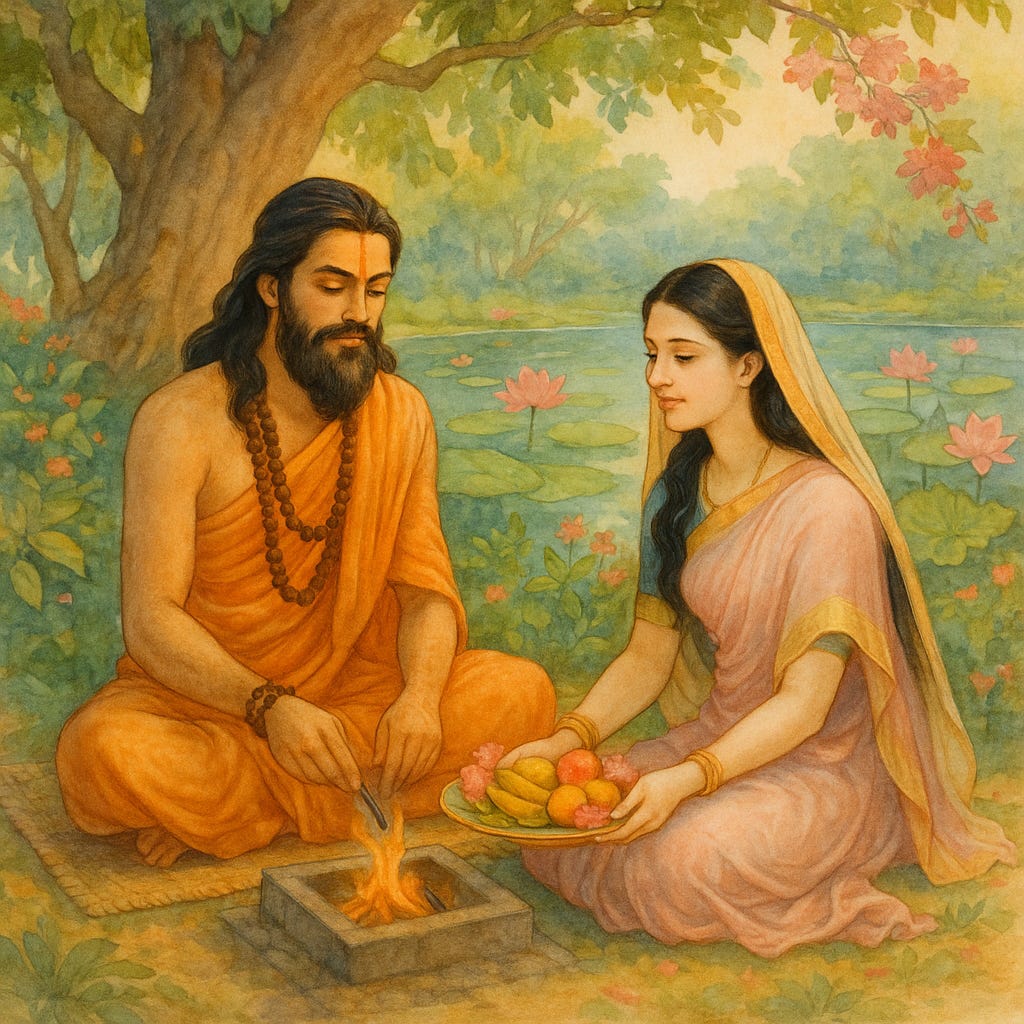
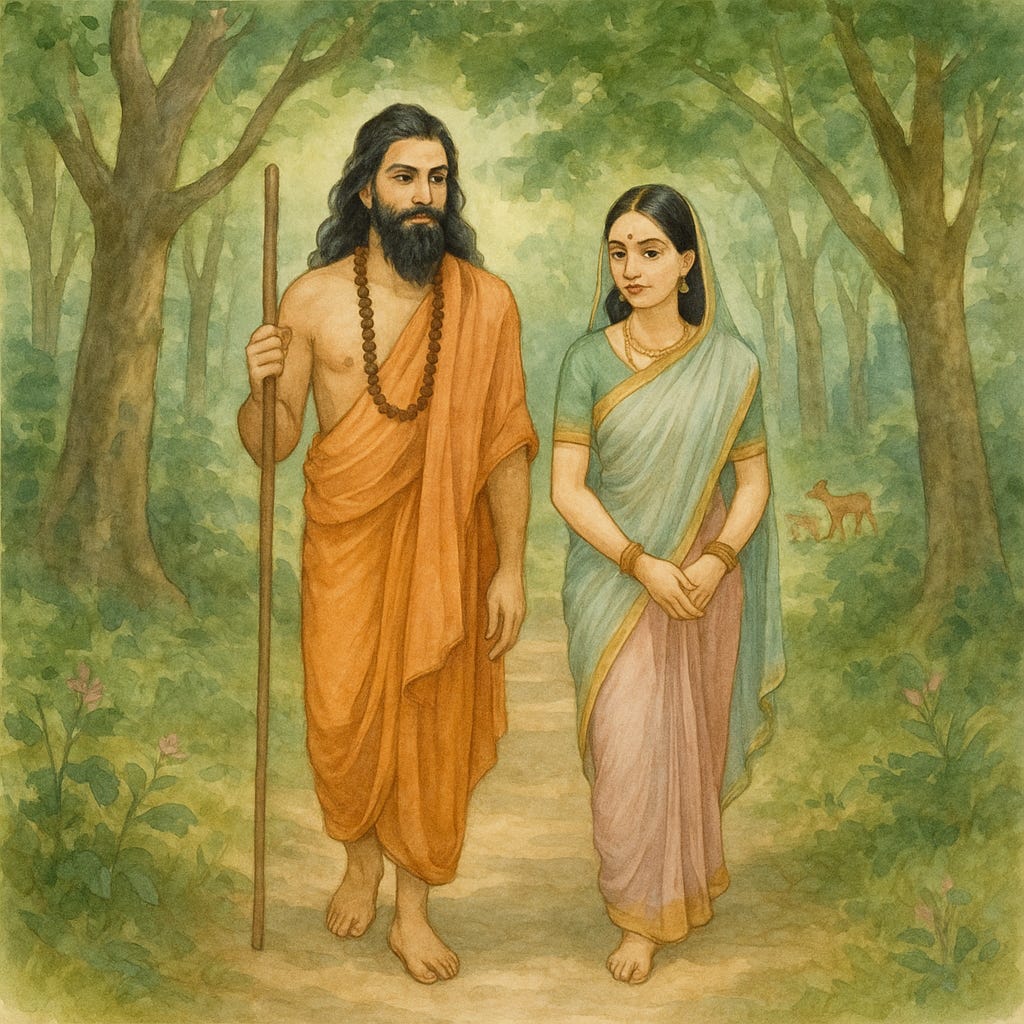
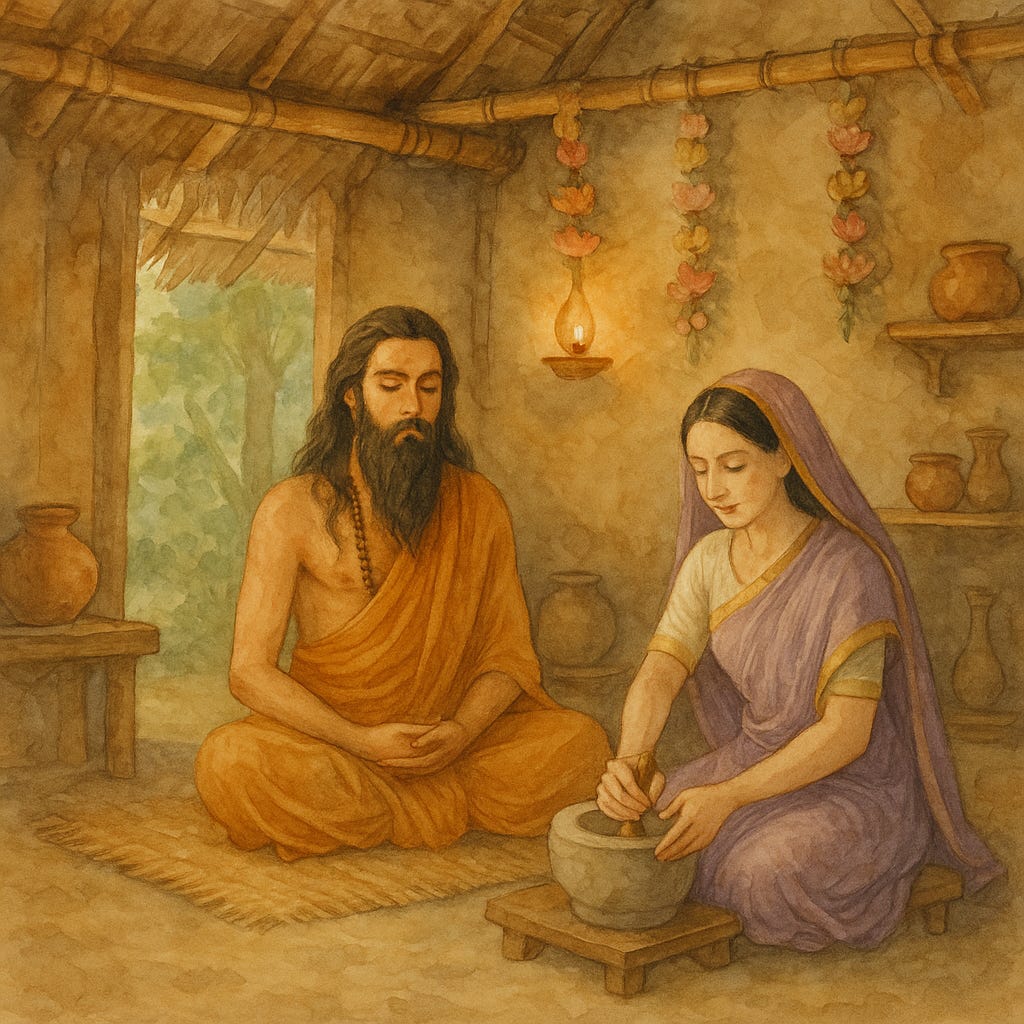
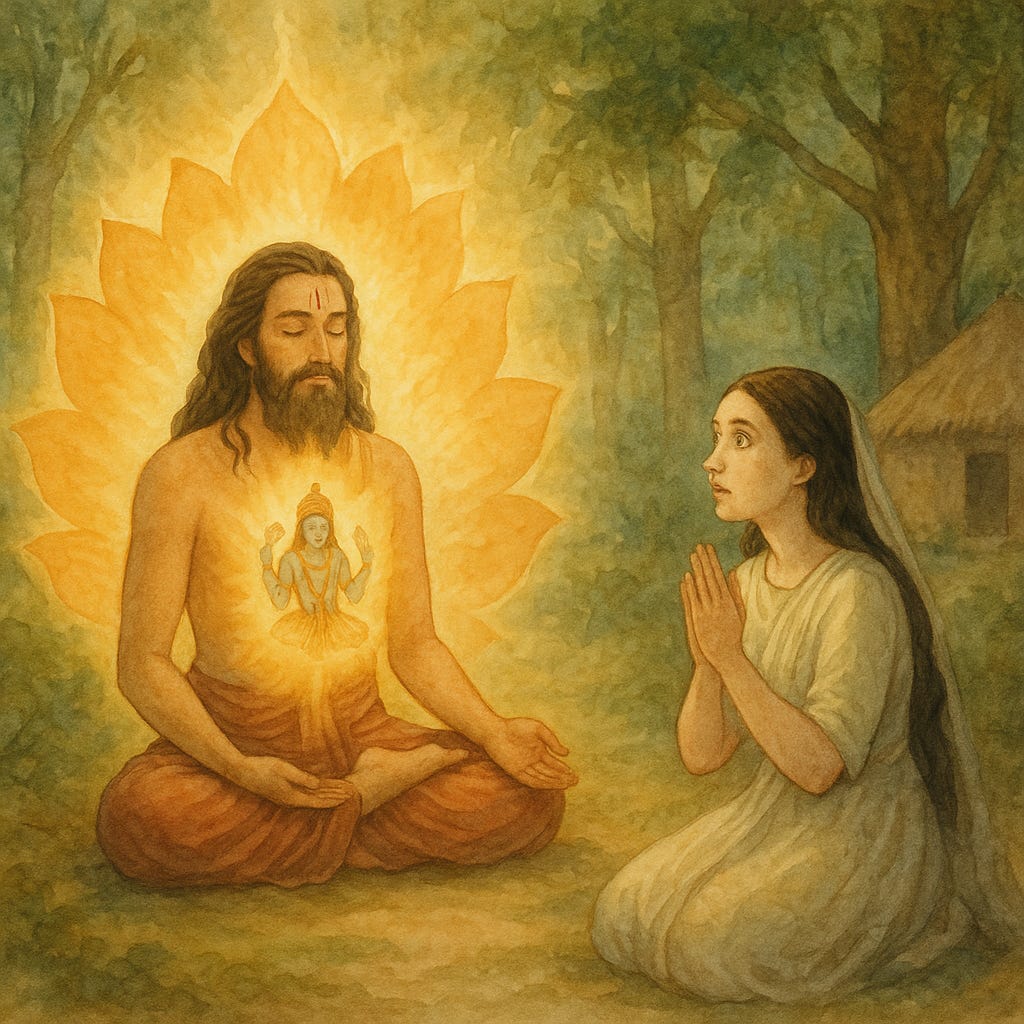


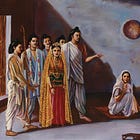
Hare Krishna Prabhu, for the last point no 5 about philosophical differences, is there a pros and cons approqch between the two. options.. - one of a case with no KC background and can be introduced before or after marriage vs a case of a practicing devotees but from different groups or sub groups of the institution.
which is better relatively?